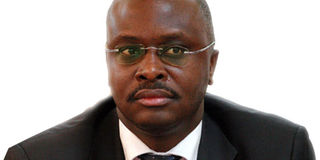Ugandans no longer vote on the basis of religion and tribe

What you need to know:
Coffee production has increased to 7.7 million 60kg bags.
As the campaigns enter the second month, I see some people writing and making statements which are not well researched. I have read Andrew Mwenda’s article in The Independent of this week titled ‘Museveni’s missing campaign.’ Some of the analyses Mwenda make are that presidential candidate Robert Kyagulanyi, aka Bobi Wine, is favoured by being a Muganda, young and Catholic, among other factors.
On these, I do not think Kyagulanyi is more of a Muganda than Muzei Paul Ssemwogere, Muzei Bidandi Ssali, Sebaanan Kizito, Dr Abed Bwanika and Beti Kamya, who are Baganda and have stood before and lost to President Museveni. On being a Catholic, is Kyagulanyi more Catholic than Ssemwogere? On age, Bwanika and Norbert Mao when they first stood for president, were also young but they still lost the election.
What those who front such reasoning forget is that Ugandans are no longer influenced by religion and tribe in their voting. Those were politics of the 1960s, which the NRM has over time reversed.
In all the elections President Museveni has won in the past, he has been voted for across the country by members of all tribes and religions. Ugandans of today vote basing on issues. I will come to that later.
Mwenda makes another mistake on the age segmentation in his article. He points out that the population of Ugandans aged between 18 and 40 is 80 per cent of the population of Uganda above 18 years.
This is not true. According to UBOS, the population of in the 18 to 40 years age segment is projected to be 14,046,600 this year, which is 71 per cent of the population above 18 years. The 18+ are projected to be 19,719,600 this year.
When I raised this issue with Mwenda on WhatsApp, he realised his mistake. I have also heard many people making mistakes on the percentage of the youth in Uganda. According to UBOS, the youth between 18 and 30 years are estimated be 23.5 per cent of the population this year.
Figures aside, what influences the youth vote? First is the family. Many youth tend to vote according to the interest of their families. A youth in an NRM family is likely to vote NRM candidate and the same is true for Opposition. This is why the NRM has been winning all the time in all regions of Uganda.
When you hear that in 2016, Museveni got 114,868 votes in Arua (58 per cent) , 56,371 in Apac (56 per cent), 176,339 in Kibaale (81.4 per cent), 32,722 in Katakwi (63.8 per cent), 86,533 in Kisoro (88.6per cent), you realise the youth in those areas voted with their parents for Museveni.
Why do these youth vote for Museveni and the NRM? The answer is NRM achievements. We now have 6,000km of tarmac roads across the country and most of the cities have tarmac roads. Then there is access to clean water in the villages. In Busoga where the President is campaigning now, out of 3,935 villages, 3,183 of them (80.8 per cent) have a clean water source. In Bukedi, out of 2,903 rural villages, 2,227 of them (76.7 per cent) have a clean water source. The remaining villages without a clean water source will be covered in the next five years.
On health in Bukedi with 164 sub-counties, 114 of them have health centre IIIs and 33 are under construction. This leaves only 17 sub- counties without a health Centre III. These 17 sub-counties will be handled in the next five years. I can go on and on.
If you consider production today, we are talking about a glut in maize, bananas, cassava, sugarcane, milk, etc. Coffee production has increased to 7.7 million 60kg bags. Who is producing these produce?
In the villages, people above 25 years already have families and are not in the category of jobless youth. For the educated youth, we are creating an enabling environment for the private sector to create jobs.
Mr Moses Byaruhanga is a Senior Presidential
Adviser on Political Affairs.




